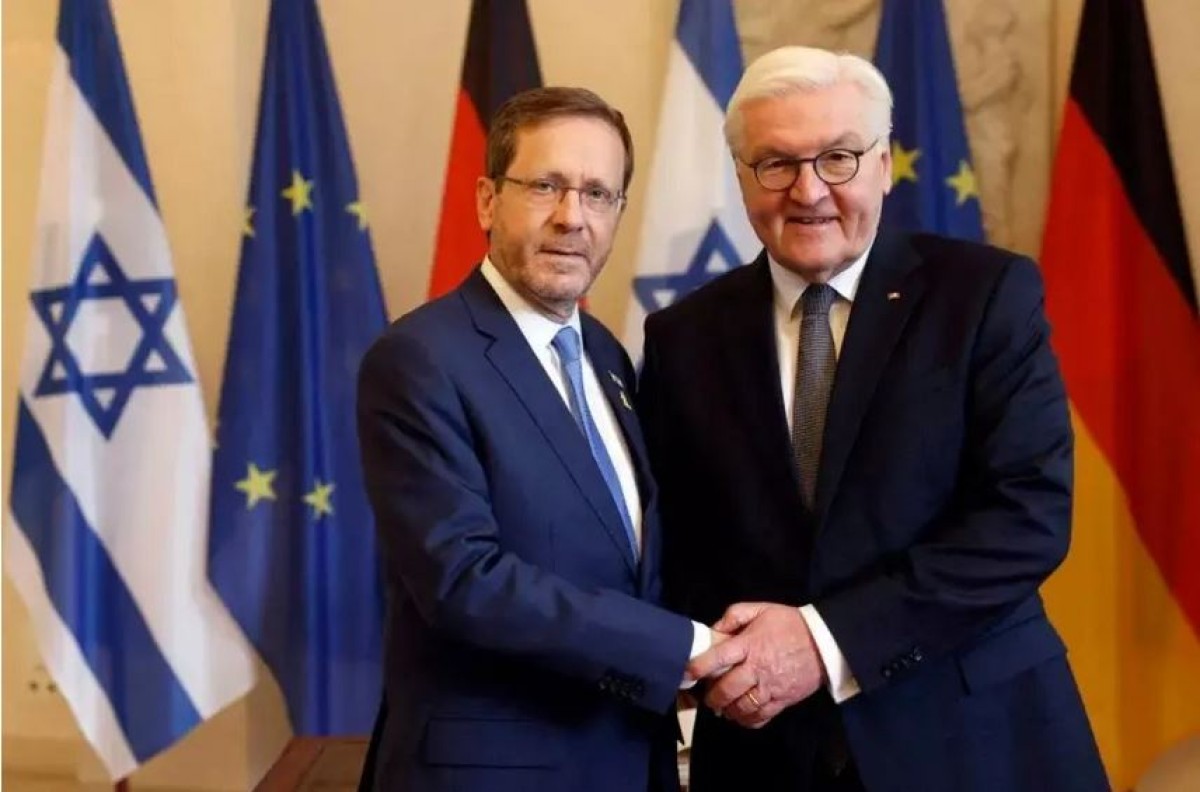 730
730
Shifting Alliances: Germany's Decline in Influence Due to Gaza Conflict
Shifting Alliances: Germany's Decline in Influence Due to Gaza Conflict
Pazooki
Since the recent conflict in Gaza began, Germany has consistently supported its long-time ally, Israel. Despite increasing accusations of severe human rights violations by Israeli forces, the German government has maintained its stance. Chancellor Olaf Scholz once declared, "Germany will always stand with Israel," and the nation has steadfastly upheld this position.
Germany's once influential in West Asia has faced a steep decline owing to its unequivocal backing of Israel and perceived bias toward Palestinian suffering. Traditionally, Germany has played a crucial role as a mediator in fostering trade and economic ties between Israel and the Arab states, leveraging its soft power to promote reconciliation. However, the prevailing geopolitical landscape has shifted, with growing support for Palestinian resistance and widespread condemnation of Israeli actions in Gaza, branded by many Arabs as a "genocidal war." Chancellor Olaf Scholz's resolute affirmation on October 7, 2023, "There is only one place for Germany right now: to stand with Israel," has further eroded Germany's sway in the region, evidenced by a nearly tenfold increase in arms export permits to Israel as of November 2023, positioning Germany as Israel's second-largest arms supplier after the United States. This stance has triggered protests in various Arab nations, notably in Tunisia, where German Ambassador Peter Prügel's remarks ignited controversy and sparked public demands for his resignation. The repercussions of Germany's policies extend to its own institutions operating in West Asia, with interviews revealing concerns among employees that Germany's steadfast position on the Gaza conflict undermines their ability to collaborate effectively with local partners and communities. A January 2023 study by the Doha Institute highlighted that 75% of respondents across 16 Arab countries hold a negative view of Germany's handling of the Gaza war, marking a significant shift from the 2020 Washington Arab Center survey, where Germany's foreign policy was generally viewed positively. This altered perception has prompted German organizations to discreetly cancel public events, delay report publications, and remove logos from projects supporting Israel to protect their staff and partners in the region.
Free Speech Under Siege: Germany's Response to Pro-Palestinian Voices
In Germany, the marginalization of Palestinians and suppression of pro-Palestinian activism have intensified, escalating significantly since October 7. Protests have frequently been banned, sometimes mere minutes before they were to begin, or permitted only under heavy police surveillance. Authorities have cited threats to public safety and potential anti-Semitic displays as justifications for these bans. In the initial weeks following Israel's war on Gaza, hundreds of protesters were detained, with many experiencing police violence and some facing charges of incitement to hatred. Even anti-Zionist voices within the Jewish minority have been targeted. The Federal Ministry of the Interior recently banned the slogan “from the river to the sea,” labeling it a call to destroy Israel, while Bavaria deemed it a “symbol of terrorism.” The Christian Democratic Union (CDU) has condemned the phrase “free Palestine” as a “war cry” for Islamist terrorists. In educational institutions, free speech has been stifled, with students facing police violence and media smear campaigns for protesting. Some institutions have banned pro-Palestinian symbols, such as the keffiyeh scarf, and there have been incidents of physical assaults on students, including a case in Berlin where a teacher assaulted a student for raising the Palestinian flag. This systematic suppression reflects Germany's stance on anti-Palestinianism as a national interest and state policy, supporting Israel's current form, which involves ongoing violence against Palestinians, mirroring Germany's historical and ongoing issues with racism.
Survey Shows Growing German Opposition to Israel's Gaza Operations
A recent poll conducted by the Forsa polling institute has revealed a significant shift in German public opinion, with 61% of Germans now opposing Israel's eight-month-long offensive in the Gaza Strip. This marks a drastic change from November when 62% supported Israel's actions. The survey, published in Stern magazine, involved 1,003 participants and has a margin of error of plus or minus three percent. The conflict has led to over 36,000 Palestinian deaths, primarily women and children. The ongoing bombardment has devastated Gaza's infrastructure and healthcare system, pushing the region to the brink of famine and leaving thousands buried under rubble. Despite initially strong support for Israel, there has been growing international criticism, including from Germany, regarding the humanitarian crisis in Gaza.
Germany's unwavering support for Israel amidst the recent Gaza conflict has significantly eroded its influence and soft power in West Asia, leading to a dramatic shift in regional perceptions and diplomatic relations. This steadfast alliance, coupled with a substantial increase in arms exports to Israel, has sparked widespread protests across Arab nations and criticism from both local and international communities. Internally, Germany has faced backlash for suppressing pro-Palestinian activism and free speech, further complicating its domestic and foreign policy stance. The sharp decline in public support for Israel's actions, as evidenced by recent polls, suggests a potential crisis in Germany's public opinion, posing a threat to its traditional role as a mediator in the region and risking isolation on the global stage if it fails to address these growing dissenting voices and human rights concerns.
 730
730
Comment
Post a comment for this article